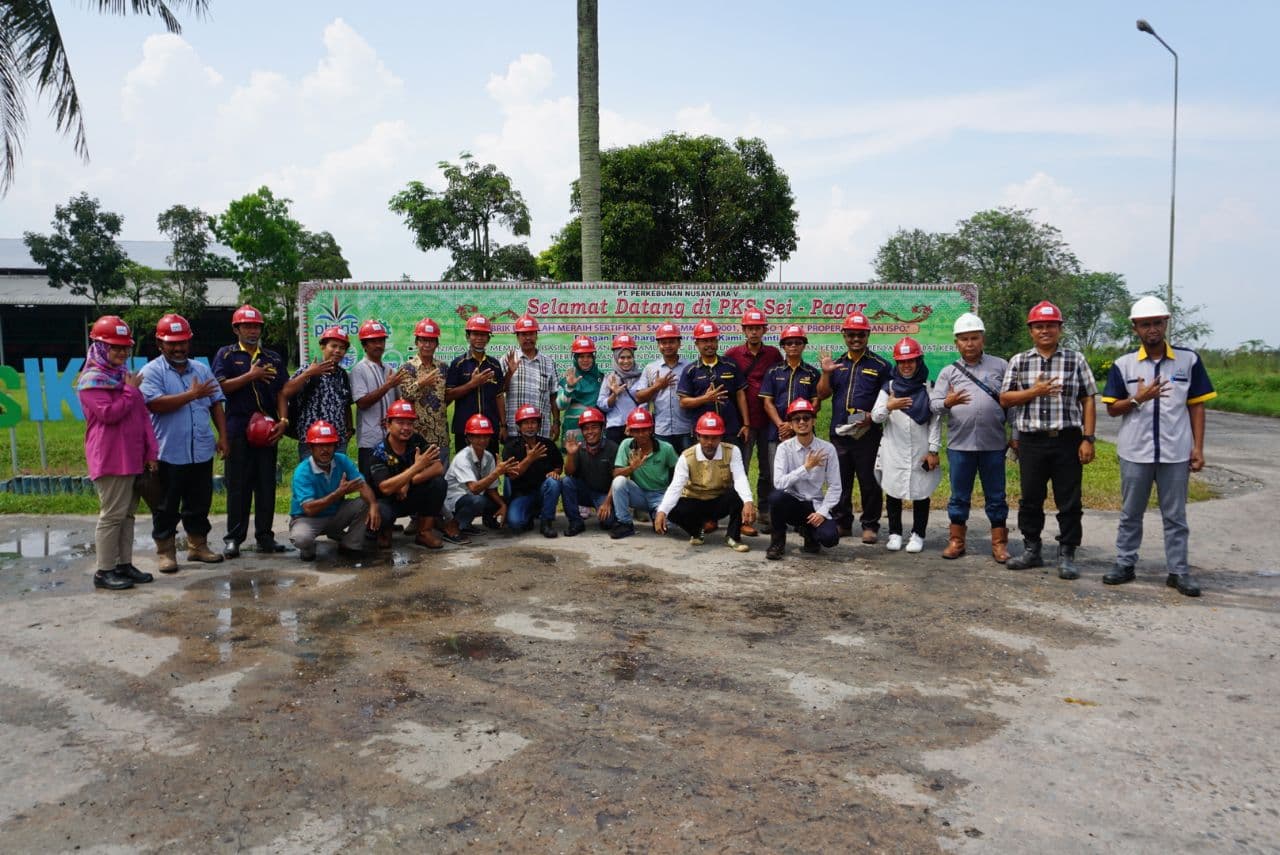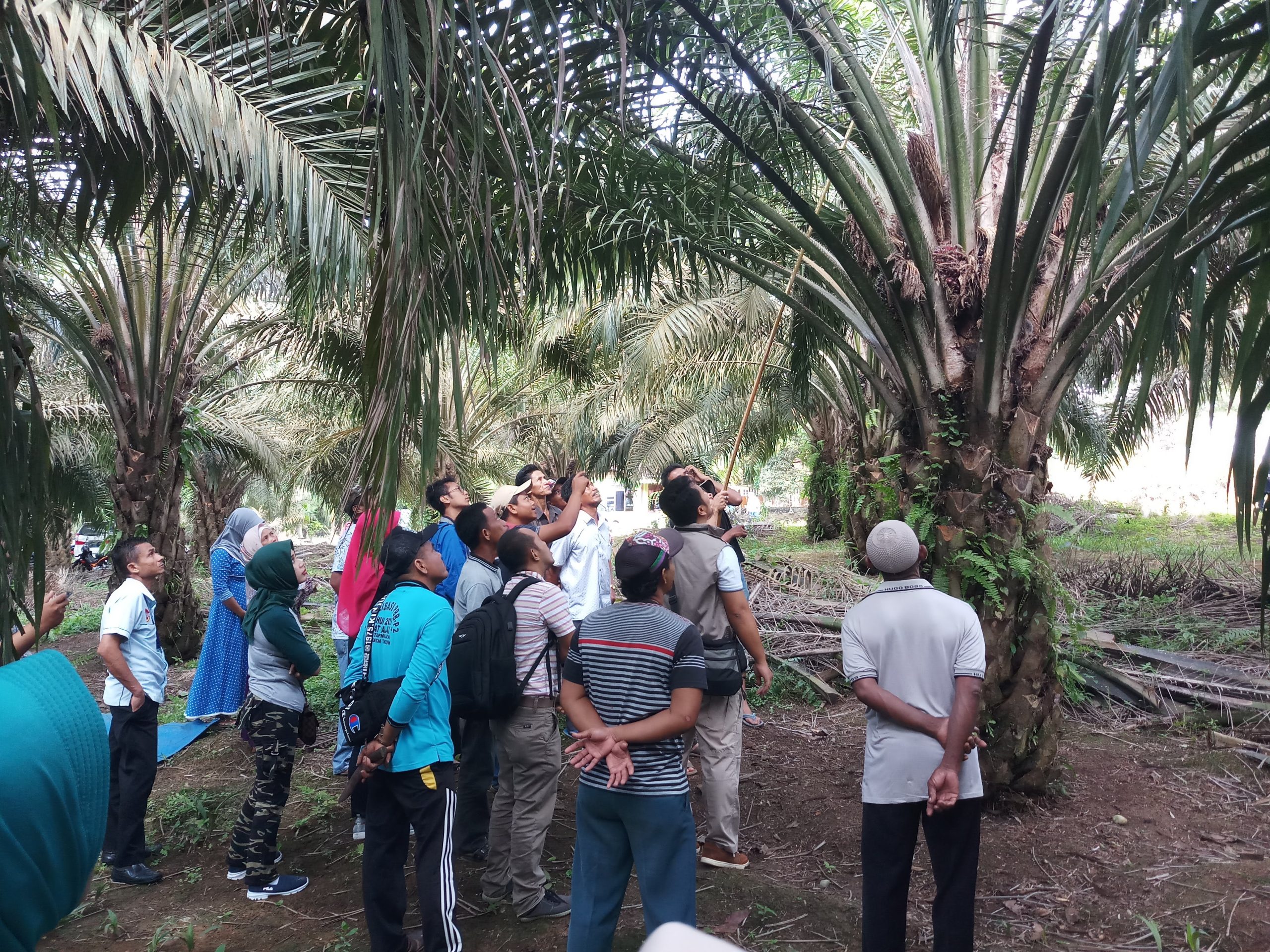
About the group
Number of smallholders: 151 (134 Men, 17 Women)
Total Land Area: 326.64 Ha
Status: Certified
Preserved Area: 1.58 Ha
Group location: Jl. Pelita IX RT.01/RW.05 Desa Tapung Jaya Kecamatan Tandun 28554 Rokan Hulu Riau Indonesia
Country: Indonesia
On-going Facilitator:
SUSTAINABILITY JOURNEY STORY
The newly certified farmers group aims to improve the livelihoods
One farmer group association called Asosiasi Pekebun Swadaya Kelapa Sawit (PSKS) Tayo Barokah was awarded RSPO certification this year and determine to use the premium to improve the livelihoods of its members.
Unlike stories of other projects that strengthening the capacity of smallholders whereby the facilitator persuaded smallholders to join the project, the story of Tayo Barokah is rather unique. The establishment of the Association was driven by the desire of independent smallholders in Rokan Hulu district to learn continuously from experts after they attended training on Best Management Practices in oil palm by WRI Indonesia, PTPN-V, Unilever, and RSPO in 2016.
“After that training, lots of independent smallholders expressed their interest to continue learning and to create a forum so they can support each other with assistance from WRI and RSPO,” recalled Agust Ariyanto, group manager of the internal control system of the Association. “This is very understandable because most independent smallholders never received any training or any support in the production of oil palm, let alone in the marketing of the fruits, unlike the scheme smallholders.”
Members of the Association are mixed of independent farmers and other farmers who have their plots under the plasma smallholders but also have other plots that they manage independently.
The group was established in 2017 and members attended a series of training in safety, best management practices, how to use the fertilizer correctly, identifying High Conservation Values in the area. The organization becomes a legal entity in 2020 and the official process to get RSPO certification started.
“Farmers used to think that to get better yields, you just have to apply lots of fertilizer. After the training, we understand it is about applying the right fertilizer at the right dosage and on the right target,” Agus explained and adding that there are other things too that determine the performance of plantation including upkeep, integrated pest management, and harvesting. “All those things affect the yields as well,” added Agus.
The benefit from applying sustainable standards is not only financial gains from getting better yields and selling RSP credits but also an awareness that documents or land legality are an important capital for farmers. “Before there was no urge to get higher land legality. Most farmers were happy just to have Surat Keterangan Tanah (a letter from the head of a village) and did not even know that they can and need to get a higher-tier of legality.” Agus Ariyanto said.
The most important benefit, in Agus’s opinion, is the development capacity of farmers to run an internal control system. “From zero, now the ICS know what to do. The whole ICS team has been learning very fast.” However, Agus concluded, we still need external parties to assist us to prepare for surveillance audit for the next year or two.
The Association also focuses on the capacity of female farmers. “Since early on, women have been playing an important role in the Association. Some key positions in the internal controls system are held by women including treasurer, the person in charge in safety training, extension services, and registration,” Agus explained with pride.
The Association is expecting to get some boost from the sale of RSPO credits in the coming months and already plan to allocate some of it to support members to procure good quality fertilizer which is the biggest cost in managing oil plantations. In the future, he continued, the organization plans to have a business unit whereby it can give loans to farmers to buy fertilizer.
Project Impact
Total area covered by the project
326.64 Ha
Number of smallholders benefitting from this project
151 Smallholders
Number/percentage of women supported by this project
11.26% women in this project
How you can support
The group members are in the third year of being RSPO certified, the ICS still needs assistance to improve their skills and capacity which in turn will ensure they can retain their certification. This effort should be appreciated by the downstream players such as Consumer Good Manufacturers or retailers.
Please give us support in the sustainable supply chain by purchasing the RSPO Smallholders Credits. There will be more attention to get more farmers to join the group to apply oil palm plantations sustainably.
GROUP CONTACT
Representative Contact
Jumal | Group Manager | [email protected] |
Dian Nurlaili
Secretary
(+62) 822-4272-1122
[email protected]
IMAGE GALLERY

PPKSS-TAYO BAROKAH

PPKSS-TAYO BAROKAH

PPKSS-TAYO BAROKAH




